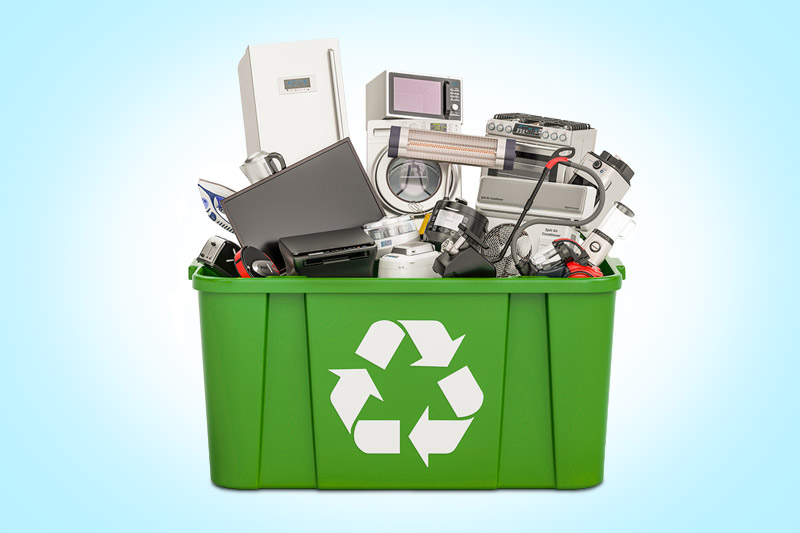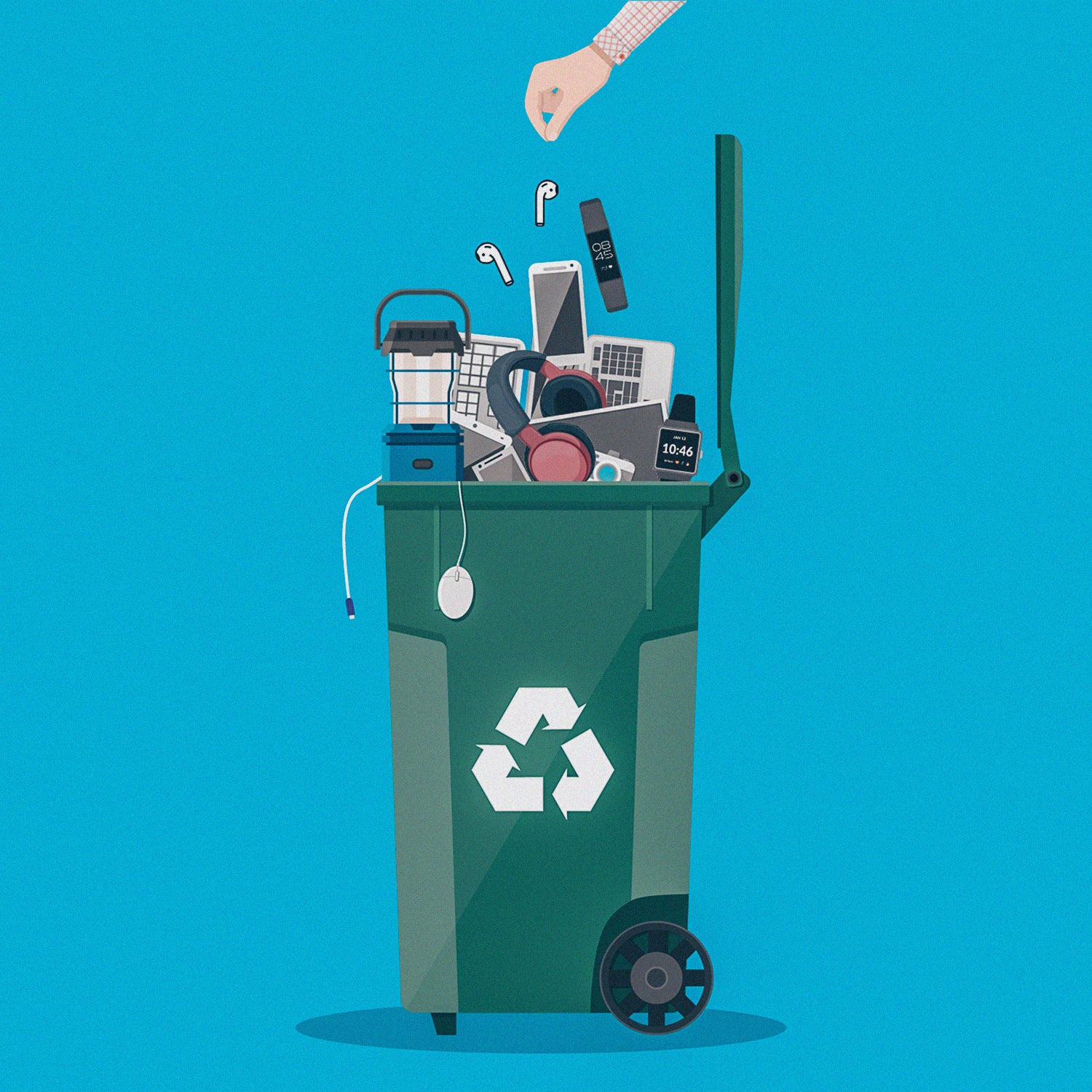Elevate Your E-Waste Monitoring With R2 Accreditation: an Extensive Overview
In the world of accountable electronic waste administration, the importance of implementing reliable techniques can not be overemphasized. As technology quickly evolves, the requirement for correct disposal and recycling of digital tools has come to be progressively essential. One trick technique to elevate e-waste management methods is by attaining R2 qualification. This certification stands as a characteristic of excellence in the area, representing adherence to rigorous standards that make certain ecologically audio practices. By checking out the benefits and processes connected with R2 qualification, a much deeper understanding of just how it can change e-waste administration approaches arises, losing light on a path in the direction of sustainability and moral disposal methods.
Importance of E-Waste Management

When e-waste is not managed appropriately, these toxic compounds can seep into the ecological community, causing injury to wild animals and potentially entering the food cycle, posturing risks to human health and wellness. The incorrect disposal of e-waste adds to pollution and greenhouse gas discharges, intensifying environment adjustment and environmental deterioration.

Advantages of R2 Accreditation

Firstly, R2 qualification enhances reputation by showcasing an organization's devotion to sustainable practices. It guarantees customers, companions, and stakeholders that the firm complies with rigid standards for e-waste monitoring - r2 certification. This integrity can result in boosted trust fund and enhanced connections with customers who focus on ecological responsibility
Secondly, R2 accreditation helps mitigate dangers connected with incorrect e-waste disposal. By following the rigorous standards stated by the certification, organizations can lessen the chance of information breaches, environmental contamination, and lawful effects. This aggressive approach safeguards the company's credibility and lessens prospective responsibilities.
Last but not least, R2 qualification shows a dedication to ecological stewardship - r2 certification. By sensibly taking care of digital waste via licensed procedures, companies add to the conservation of resources, decrease of air pollution, and promo of a round economy. This dedication not just profits the atmosphere however likewise lines up with progressing consumer expectations for sustainable business practices
R2 Qualification Refine Overview
Having actually developed the advantages of R2 accreditation in promoting integrity, danger mitigation, and ecological stewardship, it is important to currently detail the in-depth process included in obtaining this certification. The R2 qualification procedure begins with a thorough testimonial of the company's operational plans and treatments to guarantee conformity with the R2 requirement. This initial analysis is critical in determining any type of gaps that require to be attended to before continuing even more.
As soon as the organization's techniques line up with the R2 common demands, an independent third-party auditor conducts an on-site audit to review the application and performance of these methods. This audit consists of a detailed review of paperwork, meetings with team, and physical assessments of centers to confirm conformity.
Following an effective audit, the organization gets a qualification decision based upon the auditor's findings. If authorized, the company is given R2 accreditation, showing its commitment to responsible e-waste management. It is necessary to note that preserving R2 qualification requires continuous conformity with the standard's demands and periodic audits to make here are the findings sure ongoing adherence to best methods in e-waste recycling and disposal.
Trick Standards for R2 Compliance
A necessary aspect of achieving R2 compliance is making sure that all electronic waste (e-waste) processing facilities satisfy rigorous ecological and safety standards. To follow R2 needs, companies must stick to crucial standards that concentrate try this web-site on liable e-waste management practices. These criteria include executing a documented ecological, wellness, and safety and security monitoring system, making certain the secure handling of data-containing devices, and conducting comprehensive downstream due diligence to track the final destination of e-waste products.
Moreover, R2 conformity demands the correct screening, repair, and recycling of digital devices to prolong its helpful life and reduce environmental effect. Facilities seeking R2 certification must also focus on employee health and wellness and security by offering necessary training, personal protective equipment, and a safe workplace. Furthermore, maintaining detailed documents of e-waste handling activities and routinely undergoing audits by accredited licensing bodies are crucial components of showing continuous compliance with R2 criteria.
Effects of Sustainable E-Waste Practices
The implementation of lasting e-waste methods in accordance with R2 conformity not only ensures ecological and safety criteria are satisfied but additionally substantially impacts the total lifecycle of electronic items. By adhering to R2 criteria, electronic waste monitoring processes come to be much more efficient, minimizing the environmental impact of electronic items. Lasting e-waste practices promote the proper disposal of digital parts, ensuring that hazardous products are managed properly and do not wind up polluting the atmosphere.
In addition, welcoming sustainable e-waste techniques advertises the circular economic climate by facilitating the recovery and reuse of useful products from digital products. This not only preserves precious sources yet also decreases the demand for raw material extraction, reducing the environmental effect of digital manufacturing. In addition, sustainable e-waste methods can add to work production in the recycling and refurbishment industries, fostering financial development while advertising ecological responsibility. In general, the adoption of lasting e-waste techniques under R2 qualification serves as a critical step towards achieving a more ecologically sustainable electronics market.
Conclusion
To conclude, applying proper e-waste administration methods is important for environmental sustainability and resource preservation. R2 qualification plays a crucial function in guaranteeing responsible handling and disposal of digital waste. By sticking to the rigid criteria stated by R2 criteria, companies can not just reduce their environmental influence however also add to an extra sustainable future for generations to come.
One secret method to boost e-waste monitoring methods is by attaining R2 qualification. By checking out the benefits and procedures connected with R2 certification, a much deeper understanding of how it can change e-waste administration approaches arises, shedding light on a course towards sustainability and moral disposal practices.
The R2 qualification process begins with an extensive evaluation of the company's operational navigate to these guys plans and procedures to make certain compliance with the R2 criterion. If approved, the company is granted R2 certification, showing its commitment to liable e-waste management. Generally, the fostering of sustainable e-waste techniques under R2 certification serves as a crucial step towards achieving a more ecologically lasting electronic devices industry.